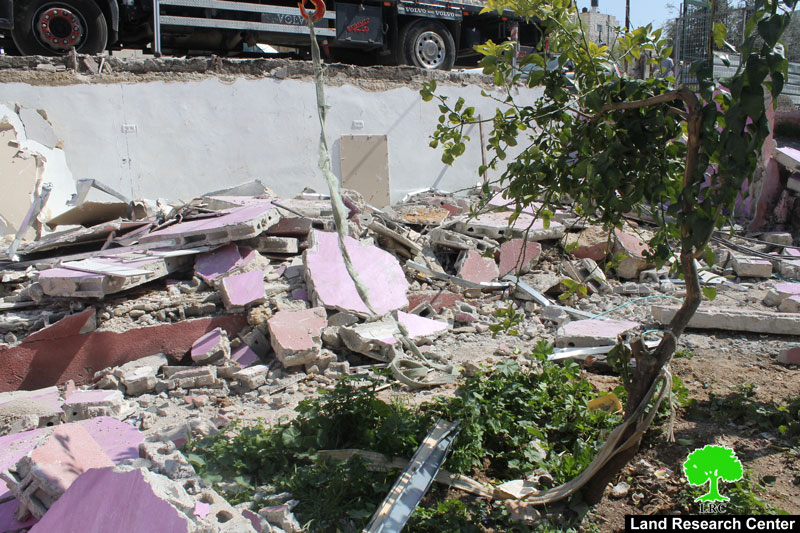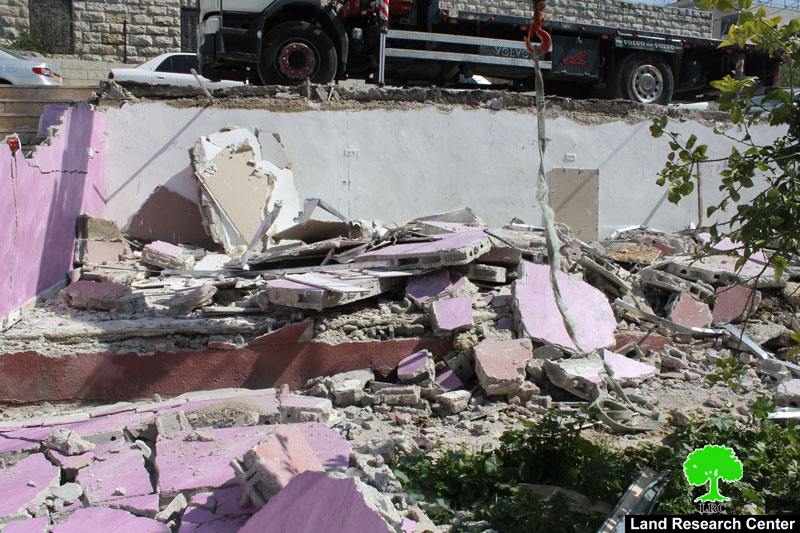2018-02-21
Israeli Occupation Forces demolish a commercial establishment in Beit Hanina
On February 21, 2018 a massive force from the Israeli Police accompanied by two dozers raided the neighborhood of Ashqaryeh in Beit Hanina and demolished a women’s salon owned by Daoud Mheisen.
Mheisen explained that the salon where his wife worked was 30 square meters and built from bricks and roofed with tin plates.
He also said that he works as a truck driver to support his two member family and expecting a baby soon.
Mheisen asserted that the force arrived at eight in the morning and imposed a tight closure on the area, banning citizens from entry and exist. Later, a Volvo dozer demolished the structure on its interior. The demolition lasted for an hour, during which the citizen was assaulted by soldiers when he tried to evacuate some of the interior.


Land Research Center LRC sees that demolitions contradict with all of the International conventions and Humanitarian laws including:
- Article 17 of the (1948) Universal Declaration of Human Rights stating: “Everyone has the right to own property alone as well as in association with others. No one shall be arbitrarily deprived of his property.”
- Section ‹G› of article 23 of the (1907) The Hague Conventions asserting: “In addition to the prohibitions provided by special Conventions, it is especially forbidden to destroy or seize the enemy's property, unless such destruction or seizure be imperatively demanded by the necessities of war.”
- Article 53 of the Geneva Fourth Convention (1948) declaring: “Any destruction by the Occupying Power of real or personal property belonging individually or collectively to private persons, or to the State, or to other public authorities, or to social or cooperative organizations, is prohibited, except where such destruction is rendered absolutely necessary by military operations.”
- Section 1, Article 11 of the International Covenant on Economic, Social and Cultural Rights (1966): “The States Parties to the present Covenant recognize the right of everyone to an adequate standard of living for himself and his family, including adequate food, clothing and housing, and to the continuous improvement of living conditions. The States Parties will take appropriate steps to ensure the realization of this right, recognizing to this effect the essential importance of international co-operation based on free consent."
This case study is part of Kan'aan Project

